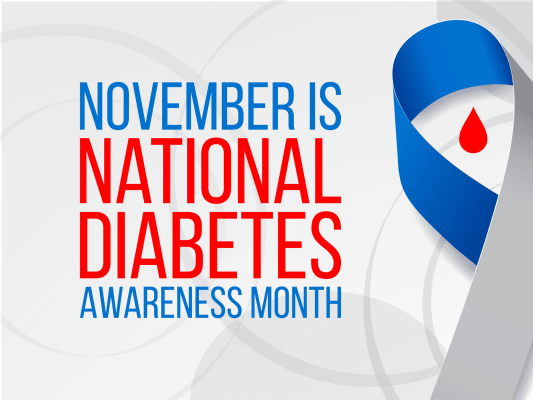A Round of Golf: Doctor’s Orders

Playing a round of golf is just what the doctor ordered.
Exercise is important for everyone, but especially important for those who have diabetes. Exercise can reduce blood glucose levels and boost your body’s sensitivity to insulin, which helps combat insulin resistance.
For those who have diabetes or prediabetes, Dr. Christine Signore, chief of Endocrinology at Middlesex Heath, has some tips that will help you both on the golf course and in other aspects of your life. But first, what is diabetes?
There are a few different types of diabetes, but Dr. Signore says Type 2 diabetes is the most common. When someone has Type 2 diabetes, the body becomes resistant to insulin, the hormone that lowers blood sugar. Because of this, the pancreas has to produce very high levels of insulin to keep the person’s blood sugar normal. Over time, the pancreas can’t keep up, and the blood sugar rises.
When someone has Type 1 diabetes, the pancreas cannot make insulin, and these individuals require insulin as soon as they are diagnosed.
Prediabetes is when a person has slightly elevated blood glucose levels ,which indicates that they are at risk of progressing to Type 2 diabetes. Gestational diabetes happens during pregnancy and causes high blood sugar, which can affect a woman’s pregnancy and the baby’s health.
In the United States, 1 in 3 have prediabetes and 1.5 million Americans are diagnosed with Type 2 diabetes every year. In fact, over the last 20 years, the number of adults with Type 2 diabetes has tripled to more than 30 million.
More than 7 million people don’t even know they have diabetes!
Who is at risk?
People over the age of 45, women who have had gestational diabetes and those who have a first-degree relative with diabetes are at risk for Type 2 diabetes, as are those who have high blood pressure, who are overweight and who live a sedentary lifestyle and who have an unhealthy diet and high cholesterol levels. Those of Asian, hispanic, African American, Native American or Pacific Islander descent are also at risk.
If you have one parent with diabetes, Dr. Signore says your risk of getting Type 2 diabetes increases four fold. If you have two parents with diabetes, you have a 50 percent chance of getting Type 2 diabetes if you become overweight.
Screening for diabetes
A primary care physician screens for diabetes, and a screening is usually done with blood work. You may be asked to fast for a blood test to measure your blood glucose, or you may be asked to do a hemoglobin A1C test, which is a test that measures your average blood glucose for the last two to three months. Less frequently, you may need to do an oral glucose tolerance test, which is a two-hour test that measures your blood glucose before and after you drink a special sweet drink.
Most screening recommendations focus on Type 2 diabetes because patients may not show symptoms. When they have Type 1 diabetes, symptoms are usually present. The American Diabetes Association recommends that adults over the age of 45 be screened every three years. Anyone with risk factors should be screened earlier and more frequently.
Dr. Signore says that screening tests do not tell the difference between Type 1 and Type 2 diabetes, but there are additional tests that can be done if Type 1 diabetes is suspected.
Tips for living with diabetes
If you are diagnosed with diabetes, you may be referred to an endocrinologist.
The most important thing anyone can do if they have, or are at risk for having, diabetes is to work on losing weight by making healthy changes to their diet and increasing their exercise, and walking the golf course can certainly help with this. Research shows that people with diabetes who walked at least two hours a week were less likely to die of heart disease than those who were sedentary. Those who exercised three to four hours a week cut their risks even more.
Here are a few tips that will help you exercise safely if you have diabetes:
- Exercise one to three hours after eating, if possible. This is when your blood sugar will likely be higher.
- If you use insulin, be sure to check your blood sugar before exercising. (This means that you should check your blood sugar before you start your round!) If your level before exercise is below 100 mg/dL, eat a piece of fruit or have a small snack. This will help you avoid hypoglycemia, a condition that occurs when your blood sugar is lower than normal..
- You should also check your blood sugar 30 minutes later to ensure that your levels are stable, and you should check it again after your workout. Your risk of developing hypoglycemia may be highest six to 12 hours after exercising.
- Don’t exercise, or be very careful when exercising, if your blood sugar is too high (over 250)! Exercise can sometimes raise your blood sugar level even more temporarily. (For most people, 100 mg/dL to 200 mg/dL is a safe blood sugar range to have before they begin exercising.)
- Wear a medical alert bracelet while on the golf course that indicates that you have diabetes and if you take insulin.
- Keep hard candy or glucose tablets with you on the golf course. This will help to keep you safe if your blood sugar drops. Symptoms of low blood sugar include feeling shaky, weak or confused.
These tips can help you as you strive to be healthy and active. However, it is not a substitute for medical advice from your own medical provider. If you have diabetes, prediabetes or other related concerns, be sure to check with your medical provider for specific instructions on how to best manage your condition.
For more information about endocrinology at Middlesex Health, click here.
Featured Provider

Christine M. Signore, MD, ECNU
Locations
- Middletown, CT
860-358-2470
- View Full Profile
- Schedule an Appointment
- Existing Patients Only
More Stories
Beware of the Mosquito!
It’s common to find mosquitoes on the golf course, especially in the brush, in wooded areas or near water, and they can be a nuisance — and a health risk.
Making a Difference One Golf Swing at a Time
June was a busy month for Middlesex Health. In addition to providing excellent care every day for patients, celebrating Pride Month and marking Juneteenth, the health system was at the golf course supporting the community!